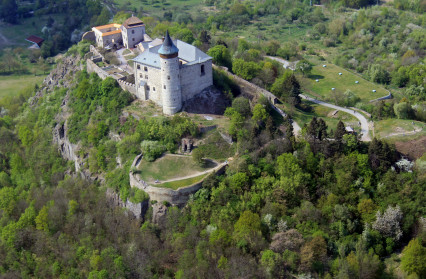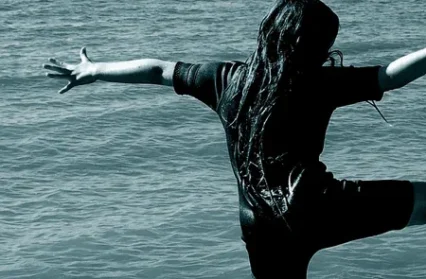Writer and critic Gary Raymond provides the final instalment to the Flash Fiction Week series with All Human Knowledge.
When his brother was buried, and the people had left, he sat at his desk at the window overlooking the garden, and wrote this:
The room was a haze of dusk red; the walls of bare pock-marked stone. From his chair, Bodo looked at the bloodless figure on the bed; the silence was an ancient, cave-dwelling silence. Bodo, a superstitious twin who carried with him a fear of insanity, would occasionally tighten his grip on the book he held, the leather groaning, and his fear would subside. If only his brother would breathe deeper while he slept.
Sebastian was in every way the match of Bodo, but was the listener, the watcher of the two, the silent commentator, the builder of scenes, the destroyer of scenes. They had once both had thick black hair; but now it was skull-revealing, it pushed out their faces and pulled in their eyes. Sebastian, dying as he was, as so many had, still looked no different from his brother on the outside, but Bodo could feel the erosion within, he could feel the bacteria tunnelling through his brother’s body, laying its eggs, establishing its loathsome civilisation, changing his other self slowly, until only the mask and clothes remained.
Sebastian was at the stage of the illness where consciousness and unconsciousness were like melody and harmony, life and spirit, and being awake was becoming more and more like the twitch of a curtain, and being asleep was becoming more and more like home. Soon sleep would become death and death would become that other life that the philosophers had talked about. But time, as mischievous as it had become in the centuries since man had discovered how to traverse it, was still growing short; that much had not changed.
The book needed to be read.
These were the last words heard by the members of this family. It had been the tradition of passing for hundreds of years. And nobody read out the words more than once; both listener and reader must embark on a new understanding of the story within, virginal in their roles.
And so when Sebastian read the book to his father decades before, he had ensured that his own death would come prior to that of Bodo, as Bodo was the only living soul for miles around, and Sebastian’s only relative. It meant Bodo would be alone one day.
But that did not mean Bodo would not read the book, the title of which was All Human Knowledge, to his dying brother. It did not mean that at all. After all, it was Bodo, of the two, who was the believer in things, the one who involved himself in the mechanics of superstition.
Sebastian stirred. As Bodo looked up from the book he was greeted by the sight of Sebastian’s small creaking smile.
‘Are you ready to go on?’ Bodo asked.
Sebastian, who no longer possessed the power of speech, responded with a look of dignified satisfaction. Bodo slowly removed his reading glasses from the breast pocket of his shirt.
‘Where were we?’
Where we always are, Sebastian wanted to say; in this old room in this old house in these old mountains.
Bodo looked scholarly in his spectacles; something he had never been. Sebastian had been the academic. His adhesion to old-fashioned techniques of study, his dedication to the books and the dusty libraries of the old universities that had been common in the world before the Great Illness had devoured it, had contributed to his demise. Many of those who were left believed the plague sailed on the air in microscopic black ships of death.
Bodo believed this. The mountains had the purest air. But somewhere in the room was the knowledge that Sebastian could not pass until Bodo had reached the end of the book, and yet they would both be there until Sebastian had passed. Perhaps outside of the room, Bodo thought, down the corridor, in another room, Sebastian was still reading to their father, time now being as mischievous as it was. But this brought Bodo no comfort.
He skimmed through the pages with his thumb, the light draft brushing his face.
‘I can’t quite remember where we were.’
And perhaps somewhere, along the corridor and upstairs, perhaps, in another room, someone was reading the book to Bodo. Perhaps.
‘Perhaps we should start again,’ said Bodo; ‘It’s important we miss nothing out.’
Sebastian smiled his dignified smile. If he could have moved, made himself more comfortable to listen to the thinness in his brother’s voice, he would have done.
All Human Knowledge by Gary Raymond is part of a Wales Arts Review series publishing original flash fiction pieces by some of Wales’ top authors in a celebration of the unique literary genre and National Flash Fiction Day.



 Enjoyed this article? Support our writers directly by buying them a coffee and clicking this link.
Enjoyed this article? Support our writers directly by buying them a coffee and clicking this link.








